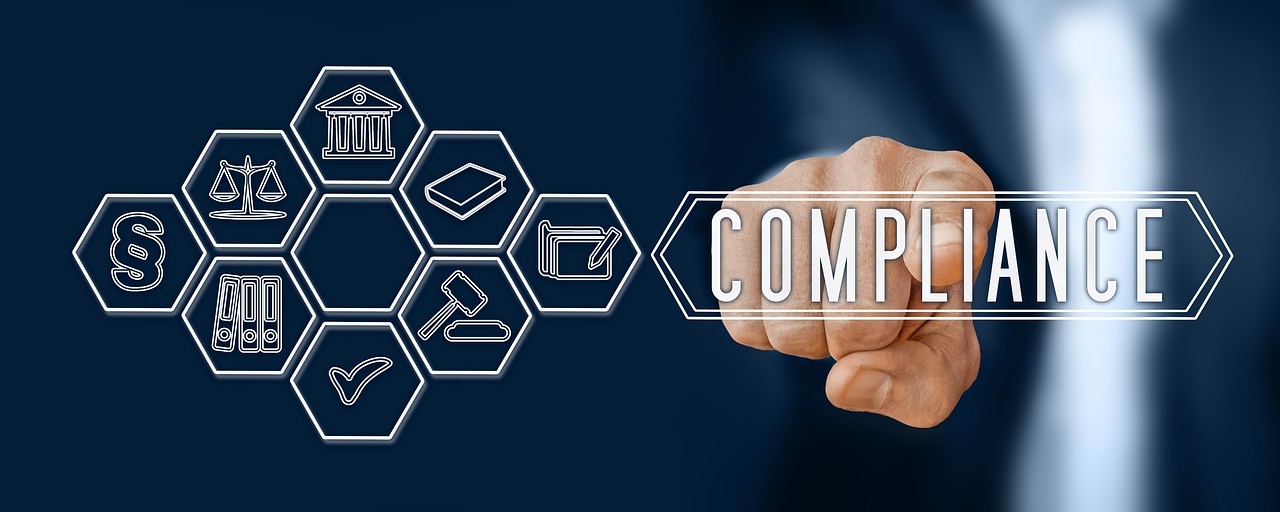Welcome to the I-9 Compliance Community, where we aim to provide you with all the information you need to ensure your business remains compliant with the immigration laws of the United States. In this community, we will explore the intricacies of I-9 compliance, discuss the potential pitfalls that businesses face, and provide practical insights to help you navigate this complex area of law. Whether you are a business owner, HR professional, or an employer responsible for hiring, this community is your go-to resource for all things related to I-9 compliance. Join us as we delve into the regulations, share best practices, and answer the frequently asked questions that often arise in this critical realm of business law.
What is I-9 Compliance?
Definition of I-9 Compliance
I-9 compliance refers to the process of ensuring that employers properly verify the identity and employment authorization of their employees. It involves following the rules and requirements set forth by the U.S. Citizenship and Immigration Services (USCIS) on the completion and retention of Form I-9.
Why is I-9 Compliance Important?
I-9 compliance is crucial for businesses to maintain legal and ethical practices in their hiring processes. It helps businesses ensure that their employees are legally authorized to work in the United States and protects them from potential liability, penalties, and reputational damage associated with unauthorized employment. By complying with I-9 regulations, businesses demonstrate their commitment to hiring a lawful workforce and contribute to maintaining the integrity of the U.S. immigration system.
The Role of I-9 Compliance in Businesses
Understanding I-9 Requirements
To achieve I-9 compliance, businesses must understand and adhere to the specific requirements outlined by USCIS. These requirements include verifying employee documents, completing Form I-9 within the designated time frame, and retaining the form for a specified period.
Consequences of Non-Compliance
Failure to comply with I-9 regulations can result in severe consequences for businesses. Employers may face civil and criminal penalties, such as fines and imprisonment, if found to have knowingly engaged in hiring unauthorized workers or engaging in fraudulent activities related to Form I-9. Non-compliance can also lead to tarnished reputations, loss of government contracts, and intrusive investigations by government agencies.
Form I-9 Basics
Purpose of Form I-9
Form I-9 is a required document that serves as evidence of an employee’s identity and employment authorization. It enables employers to establish their compliance with federal immigration laws and it must be completed for every employee hired after November 6, 1986.
Completing Form I-9
When completing Form I-9, employers must ensure that both the employee and employer sections are accurately filled out. This includes verifying the authenticity of the employee’s documents and attesting to their validity. Employers must also ensure that the form is signed and dated within the designated time frame.
List of Acceptable Documents
Form I-9 provides a list of acceptable documents that employees can present to establish their identity and employment authorization. These documents include passports, Social Security cards, driver’s licenses, and permanent resident cards, among others. Employers must carefully review and validate these documents in order to comply with the I-9 requirements.
Retention and Storage of Form I-9
Completed forms must be retained by employers for a specified period, starting from the date of hire or three years from the date of employment, whichever is later. Employers must store the forms securely, ensuring they are accessible for inspection by authorized government agencies.
Common Mistakes to Avoid
When completing Form I-9, employers should be aware of common mistakes that can lead to non-compliance. These mistakes include failing to complete all necessary sections, accepting expired documents, and failing to reverify employment authorization when necessary. Employers must be diligent in avoiding these errors to maintain I-9 compliance.
I-9 Compliance Best Practices
Establishing Policies and Procedures
To ensure consistent and accurate completion of Form I-9, businesses should establish comprehensive policies and procedures. These should outline the steps to be followed when hiring and verifying employee documents, as well as the guidelines for record-keeping and compliance audits.
Training HR Personnel
Properly training Human Resources personnel is essential to maintain I-9 compliance. HR staff should receive training on I-9 requirements, document verification techniques, and the proper completion of Form I-9. Ongoing training should be provided to keep HR staff updated on any changes in regulations or best practices.
Regular Internal Audits
Conducting regular internal audits is a proactive approach to ensuring I-9 compliance. Employers should periodically review their records, identify potential errors or inconsistencies, and take corrective actions promptly. Internal audits help businesses identify areas for improvement and minimize the risk of non-compliance.
Maintaining Updated Forms
As USCIS periodically updates Form I-9, it is crucial for employers to stay informed about any changes and ensure that they are using the most current version of the form. By using outdated forms, employers risk non-compliance and potential penalties.
Documenting Compliance Efforts
Keeping a record of compliance efforts is important for businesses. Documenting actions taken to ensure I-9 compliance, such as training sessions attended, internal audits conducted, and policy updates, demonstrates a commitment to maintaining a lawful workforce. These documents can be helpful in the event of an audit or investigation.
Understanding E-Verify
Overview of E-Verify
E-Verify is an internet-based system that allows employers to verify the employment eligibility of their employees. It compares information from an employee’s Form I-9 with government databases to determine their work authorization status. While E-Verify is not mandatory for all employers, some federal contractors and employers in certain states are required to use it.
Benefits and Limitations of E-Verify
The use of E-Verify offers several benefits to employers, including increased confidence in hiring authorized workers, protection against certain civil penalties, and streamlined employment verification processes. However, it is important to understand that E-Verify is not foolproof and may generate false negatives or false positives. Employers must exercise caution when relying solely on the results of an E-Verify query.
Compliance with E-Verify
If employers are required to use E-Verify, they must ensure compliance with the program’s guidelines. This includes properly registering for and using the system, verifying newly hired employees within the required time frames, and understanding the procedures for resolving cases in which a work authorization mismatch occurs.
Interacting with Immigration and Customs Enforcement (ICE)
Understanding ICE Enforcement
Immigration and Customs Enforcement (ICE) is the agency responsible for enforcing immigration laws in the United States. ICE conducts audits and investigations to ensure compliance with I-9 regulations and takes enforcement actions against employers found to be non-compliant. Being prepared to interact with ICE, if necessary, is crucial for businesses seeking to maintain I-9 compliance.
Best Practices for ICE Audits
To prepare for potential ICE audits, businesses should establish protocols for handling such situations. This includes designating a point of contact, familiarizing staff with their rights and responsibilities during an audit, and providing training on how to handle an ICE visit or investigation. Engaging legal counsel experienced in immigration law can also help businesses navigate the complexities of ICE audits.
Correcting Errors and Mistakes
In the event errors or mistakes are identified on completed Form I-9s, employers should take prompt action to correct them. This includes following the proper procedures for making corrections, providing explanations for any changes made, and retaining documentation of the corrections. Timely and accurate correction of errors demonstrates a commitment to compliance and may mitigate potential penalties.
Dealing with Enforcement Actions
If a business is subject to enforcement actions by ICE due to non-compliance, it is crucial to seek legal counsel specialized in immigration law. Legal professionals can guide employers through the enforcement process, represent their interests during investigations or hearings, and help develop a defense strategy. Promptly addressing enforcement actions is essential to minimize potential penalties and protect the business’s reputation.
International Workers and Compliance
Hiring Non-US Citizens
When hiring non-U.S. citizens, employers must ensure compliance with additional requirements and visa restrictions. It is essential to verify employment authorization documents specific to each employee’s immigration status and maintain proper records of visa documentation and extensions.
Employment Authorization Documents
Non-U.S. citizens must provide specific employment authorization documents, such as an employment authorization card (EAD) or an Alien Registration Number, to establish their eligibility to work in the United States. Employers must carefully review and properly record these documents while complying with privacy and anti-discrimination laws.
Visas and I-9 Compliance
Different visa categories have specific rules regarding employment authorization. Employers must familiarize themselves with the requirements and restrictions of each visa category their foreign workers hold. Adhering to these guidelines ensures compliance with I-9 regulations and helps prevent unauthorized employment.
Tips for Compliance with International Workers
To maintain compliance with international workers, businesses should establish procedures to track and monitor their employees’ work authorizations and visa expiration dates. This includes keeping accurate records of visa documentation, verifying extensions when necessary, and promptly addressing any concerns or issues related to work authorization.
Conducting Internal I-9 Audits
Benefits of Internal Audits
Internal audits are an essential tool for ensuring ongoing I-9 compliance. They allow businesses to identify and correct any deficiencies or mistakes in I-9 forms before being subject to an external audit. Internal audits provide opportunities for self-correction, minimizing potential penalties and demonstrating a commitment to maintaining a compliant workforce.
Developing an Internal Audit Plan
To effectively conduct internal I-9 audits, businesses should develop a comprehensive audit plan. This plan should outline the audit frequency, identify the responsible personnel, establish auditing procedures, and address the corrective actions to be taken if non-compliance is identified. Following a structured audit plan increases the efficiency and effectiveness of the internal audit process.
Common Compliance Issues to Look for
During internal I-9 audits, businesses should be diligent in identifying common compliance issues. These issues may include incomplete or missing forms, errors in document verification, improper completion of the form, and non-compliance with record retention requirements. By being aware of these issues, businesses can take corrective actions and enhance their overall compliance efforts.
Addressing Non-Compliance Findings
If non-compliance is identified during an internal I-9 audit, it is crucial for businesses to take immediate corrective action. This includes addressing any deficiencies or errors found, making necessary amendments to Form I-9s, and implementing measures to prevent future non-compliance. Engaging legal counsel experienced in I-9 compliance can provide guidance on resolving any compliance issues.
Engaging Legal Counsel for I-9 Compliance
The Importance of Legal Counsel
Engaging legal counsel experienced in I-9 compliance is vital for businesses seeking to navigate the complexities of immigration laws. Legal professionals can provide expert advice, guidance, and representation to ensure businesses comply with I-9 regulations and mitigate any potential risks associated with non-compliance.
When to Involve Legal Counsel
Businesses should involve legal counsel in matters of I-9 compliance when facing enforcement actions, conducting internal audits, developing compliance policies and procedures, or seeking guidance on complex immigration issues. Legal counsel can provide valuable insights, help develop compliance strategies, and ensure businesses remain in compliance with changing immigration laws.
Selecting the Right I-9 Compliance Attorney
When selecting an attorney to handle I-9 compliance matters, businesses should consider several factors. These include the attorney’s experience and expertise in immigration law, their track record in handling I-9 compliance cases, their understanding of the business’s industry and specific needs, and their ability to provide proactive guidance and support.
Frequently Asked Questions (FAQs)
What are the penalties for non-compliance?
Penalties for non-compliance with I-9 regulations can vary depending on the severity and frequency of the violations. They can range from monetary fines to criminal charges, including imprisonment. It is crucial for businesses to prioritize I-9 compliance to avoid potential penalties.
Can I use electronic records for Form I-9?
Yes, businesses have the option to use electronic records for Form I-9 as long as certain requirements are met. Using electronic I-9 systems can streamline the process, enhance record-keeping, and facilitate compliance. However, businesses must ensure the electronic system complies with specific USCIS guidelines to maintain compliance.
Do independent contractors need to complete Form I-9?
In general, independent contractors are not considered employees and, therefore, are not required to complete Form I-9. However, businesses should exercise caution when classifying workers as independent contractors to ensure compliance with employment and tax laws. Consulting with legal counsel is recommended to navigate this complex area of worker classification.
What happens if a mistake is found on a completed Form I-9?
If a mistake is identified on a completed Form I-9, employers should promptly correct the error by following specific procedures outlined by USCIS. This includes using a single line to strike through the error, making the necessary correction, and initialing and dating the correction. Employers should also retain the original form with the corrected information.
How often should I conduct internal I-9 audits?
The frequency of internal I-9 audits may vary depending on various factors, such as the size of the business, the industry, and the level of risk associated with compliance. However, businesses are encouraged to conduct audits at least once a year to maintain ongoing compliance. Regular audits help identify and address any emerging compliance issues.



















